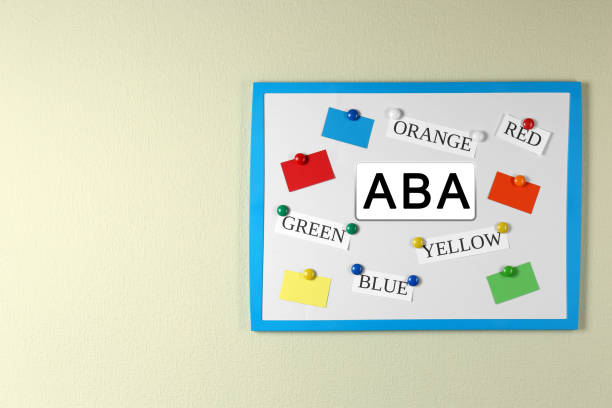Breastfeeding is a beautiful, natural way to nourish your baby and provide the essential nutrients they need in the early stages of life. But at some point, every mother faces the question: When should I stop breastfeeding? Deciding when to stop breastfeeding is a personal decision and one that depends on many factors, including the health of both mother and baby, lifestyle, and personal preferences. At Top Health Coach, we understand that this can be a difficult decision, and we’re here to provide guidance on how long to breastfeed and how to determine the right time to transition away from breastfeeding.

In this blog, we’ll explore the recommendations for how long to breastfeed, factors to consider when deciding to stop, and tips for making the transition smoother for both you and your baby.
How Long Should You Breastfeed?
Before diving into when to stop breastfeeding, it’s important to understand how long you should breastfeed. According to the American Academy of Pediatrics (AAP), it is recommended that mothers exclusively breastfeed for the first six months of life. This means that the baby receives only breast milk, with no other foods or liquids. After the first six months, complementary foods can be introduced, but breastfeeding should continue for at least the first year, and ideally longer, as mutually desired by the mother and baby.
Breast milk provides a wealth of benefits for your baby, including essential nutrients, antibodies that help protect against illness, and the emotional bond formed during breastfeeding. Additionally, breastfeeding beyond infancy offers numerous benefits, including continued immune support, emotional security, and positive developmental outcomes.
However, it’s crucial to remember that the ideal duration of breastfeeding varies from family to family. Some mothers may choose to breastfeed for several months, while others may continue well into toddlerhood. The most important thing is that both mother and baby are comfortable with the breastfeeding journey, and that the decision to stop breastfeeding is made with consideration of everyone’s needs.
Factors to Consider When Deciding When to Stop Breastfeeding
The decision of when to stop breastfeeding is influenced by various factors. Here are some considerations to help guide you through the process.
1. Baby’s Nutritional Needs
Breast milk is the optimal source of nutrition for your baby in the first months of life. As babies grow, they begin to explore solid foods, but breast milk or formula should still be a primary source of nutrition up until the first year, and beyond if you choose. When your baby shows signs of readiness for solid food and you’ve successfully started incorporating them, you may start thinking about reducing the frequency of breastfeeding.
If your baby is still breastfeeding multiple times a day and showing interest in nursing, there’s no rush to stop. Gradually transitioning from breastfeeding to solid foods will help your baby get used to the change and maintain a balanced diet.
2. Baby’s Developmental Milestones
Another factor to consider is your baby’s developmental milestones. As babies grow, they become more independent and may gradually reduce the number of breastfeeds as they start to eat more solids and drink from a cup. Some babies naturally wean themselves, showing less interest in breastfeeding as they get older, while others may rely on the comfort of nursing for a longer period.
Watching for signs of readiness, such as your baby being able to drink from a cup or showing interest in eating solid foods, can help you gauge when it may be the right time to start transitioning away from breastfeeding.
3. Mother’s Comfort and Health
Breastfeeding requires a significant amount of time and energy from mothers. If you find that breastfeeding is becoming physically or emotionally exhausting, or if you feel ready to reclaim your body or resume other activities, it may be time to consider stopping. It’s important to listen to your body and prioritize your well-being.
If breastfeeding is affecting your mental health or making you feel overwhelmed, it’s okay to seek support or consider stopping earlier than planned. Remember, there’s no one-size-fits-all timeline for breastfeeding. The best decision is the one that works for both you and your baby.
4. Work and Lifestyle Considerations
As babies grow older, many mothers start returning to work or other commitments. If you’re transitioning back to work or have a busy schedule, you might find it difficult to continue breastfeeding as often as before. In this case, you may choose to start weaning or gradually reduce the frequency of breastfeeding sessions.
Some mothers choose to pump milk while at work, while others opt to switch to formula feeding or gradually introduce whole milk (after the first year). You may also choose to continue breastfeeding in the mornings, evenings, and weekends for bonding, while offering formula or cow’s milk during the day.
Signs It May Be Time to Stop Breastfeeding
There is no exact time or “right age” to stop breastfeeding, but here are some signs that it might be time to transition away from breastfeeding:
-
Baby is less interested in breastfeeding: If your baby is distracted, pulls away from the breast, or shows less interest in nursing, they may be ready to start weaning.
-
You feel physically ready: If breastfeeding is becoming physically uncomfortable, or if you’re ready for more independence, this might be an indication to stop or reduce the frequency.
-
Baby is eating more solids: Once your baby is eating a well-rounded diet with solid foods and drinking fluids like water or milk, they may not need to rely on breast milk as their primary source of nutrition.
-
Breastfeeding is impacting your mental health: If breastfeeding is causing emotional stress or feelings of exhaustion, it’s important to prioritize your mental health and consider weaning.
How to Transition Away from Breastfeeding
If you and your baby are ready to stop breastfeeding, it’s best to do so gradually. Sudden weaning can lead to discomfort for both mother and baby and can result in engorged breasts. Here are some tips for transitioning:
-
Gradual Weaning: Start by reducing the frequency of breastfeeding sessions one at a time. You can replace one breastfeeding session with a bottle of formula or expressed breast milk, and gradually replace more sessions over time. This will give your body time to adjust to the reduced demand for milk.
-
Comfortable Alternatives: As you reduce breastfeeding, introduce other comforting and bonding activities with your baby, such as cuddling, reading, or giving your baby a pacifier, to help them adjust to the change.
-
Offer Nutritional Alternatives: If you plan to stop breastfeeding before your baby is one year old, ensure they receive appropriate nutrition through formula. After the first year, you can introduce whole milk or other alternative milk options.
-
Be Patient and Flexible: Weaning is a process, and every mother and baby’s journey will be different. Some babies wean quickly, while others may take longer. Be flexible with your plan and try to follow your baby’s cues.
Conclusion
Deciding when to stop breastfeeding is a deeply personal decision. There’s no right or wrong answer—it’s all about what works best for you, your baby, and your family. Whether you breastfeed for a few months or continue well into toddlerhood, the most important thing is that both you and your baby are happy, healthy, and supported throughout the process.
At Top Health Coach, we understand that transitioning away from breastfeeding can be challenging. We’re here to support you every step of the way. Remember, there’s no set timeline for how long you should breastfeed; trust your instincts and make the decision that feels right for both you and your baby.


